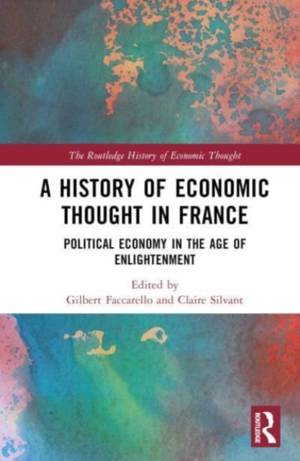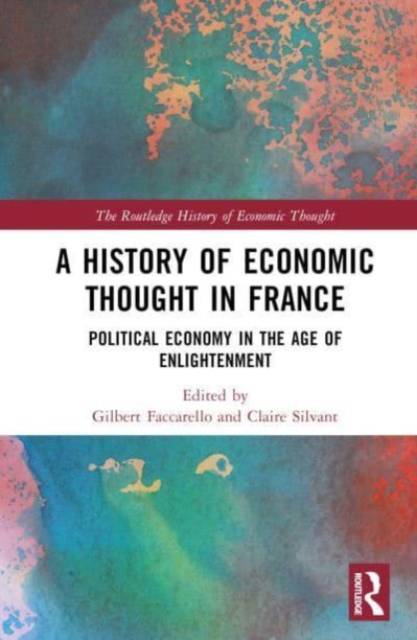
- Retrait gratuit dans votre magasin Club
- 7.000.000 titres dans notre catalogue
- Payer en toute sécurité
- Toujours un magasin près de chez vous
- Retrait gratuit dans votre magasin Club
- 7.000.0000 titres dans notre catalogue
- Payer en toute sécurité
- Toujours un magasin près de chez vous
A History of Economic Thought in France
Political Economy in the Age of Enlightenment
Description
Traditionally, there has been a long and sustained interest in studying the history of economic ideas in France. Interest appeared to wane after World War II, but in recent decades, there has been a marked renaissance of interest and research in the contributions of French-speaking authors. Drawing on the flow of recent research, this book presents a new assessment of the history of political economy in France incorporating both novel presentations of some traditional subjects and topics that are not usually studied.
This first volume deals with the history of political economy in France in the Age of Enlightenment. After presenting a kind of "review of the troops" and some main developments inherited from preceding centuries, the chapters are devoted to P. de Boisguilbert's foundation of liberal political economy; J. Law's monetary theory and policy; the many strands of "commerce politique"; the theoretical developments of F. Quesnay and the physiocratic movement; and A.-R.-J. Turgot's, J.-J.-L. Graslin's and M.-J.-A.-N. Caritat de Condorcet's sensationist political economy. The volume then examines some political critiques of liberal political economy and goes on with a study of the first attempts to quantify economic variables and to formalise the economic discourse. It concludes with a chapter on the importance of translations into French of books published abroad, and with the main institutional and theoretical developments which happened during the French Revolution.
A History of Economic Thought in France will be invaluable reading for advanced students and researchers of the history of economic thought, political economy, intellectual history and French history.
Spécifications
Parties prenantes
- Editeur:
Contenu
- Nombre de pages :
- 278
- Langue:
- Anglais
- Collection :
Caractéristiques
- EAN:
- 9780367194468
- Date de parution :
- 02-10-23
- Format:
- Livre relié
- Format numérique:
- Genaaid
- Dimensions :
- 156 mm x 234 mm
- Poids :
- 585 g

Les avis
Nous publions uniquement les avis qui respectent les conditions requises. Consultez nos conditions pour les avis.





